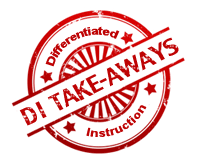
It’s been said that “the best offense is a good defense.” Probably nowhere is this truer than when it comes to classroom management. Prevention is a key ingredient in classroom management, and the more preventative maintenance that can be done through the use of proactive strategies, the less likely teachers will be to encounter problem behavior. But even the most well run classrooms will experience problems from time to time. For some teachers, behavior problems in the classroom will be a common occurrence or even a daily “routine” that results from the growing “culture of disrespect” that has progressively infiltrated our schools. For others, discipline problems may be rare, occurring only in unusual circumstances or situations. But regardless of their frequency, we know they are bound to occur.
When challenging behavior does occur, teachers must be equipped with the necessary tools to handle such challenges in a professional, mutually respectful way that still holds offending students accountable while minimizing disruptions to learning. This is a tall order, but it can be achieved in all but the most extreme circumstances through the use of the reactive strategies taught in my course.
In all cases, a proper response to misbehavior begins early on in the chain of events. Teachers must commit to dealing with behavior problems when they occur by first evaluating the nature or threat of the behavior to student learning and then by responding appropriately. Conflict is inevitable, but combat is optional, and with prompt attention paid to emergent misbehavior through early intervention strategies, up to ninety percent of minor, pesky behavior problems can be eliminated in the classroom.
![]()
Classroom Management Beliefs
- Times have changed.
- Teachers are doing an incredible job.
- ”Kids don’t care how much you know until they know how much you care.” Dr. Madeline Hunter
- Good discipline is a matter of good timing.
- Conflict is an essential part of growing up.
- Parenting affects behavior.
- We cannot use poor parenting as an excuse for not teaching.
- Problem behavior can entrap us.
- Curriculum comes first, but discipline does, too!
- Self-esteem matters.
- Students do not necessarily know how to behave.
- Classroom rules and routines need to be systematically taught.
- Teaching succeeds where punishment fails.
- We need an effective consequence for low-level misbehavior.
- An effective discipline program teaches responsible behavior.
- We can make a difference to every child.

